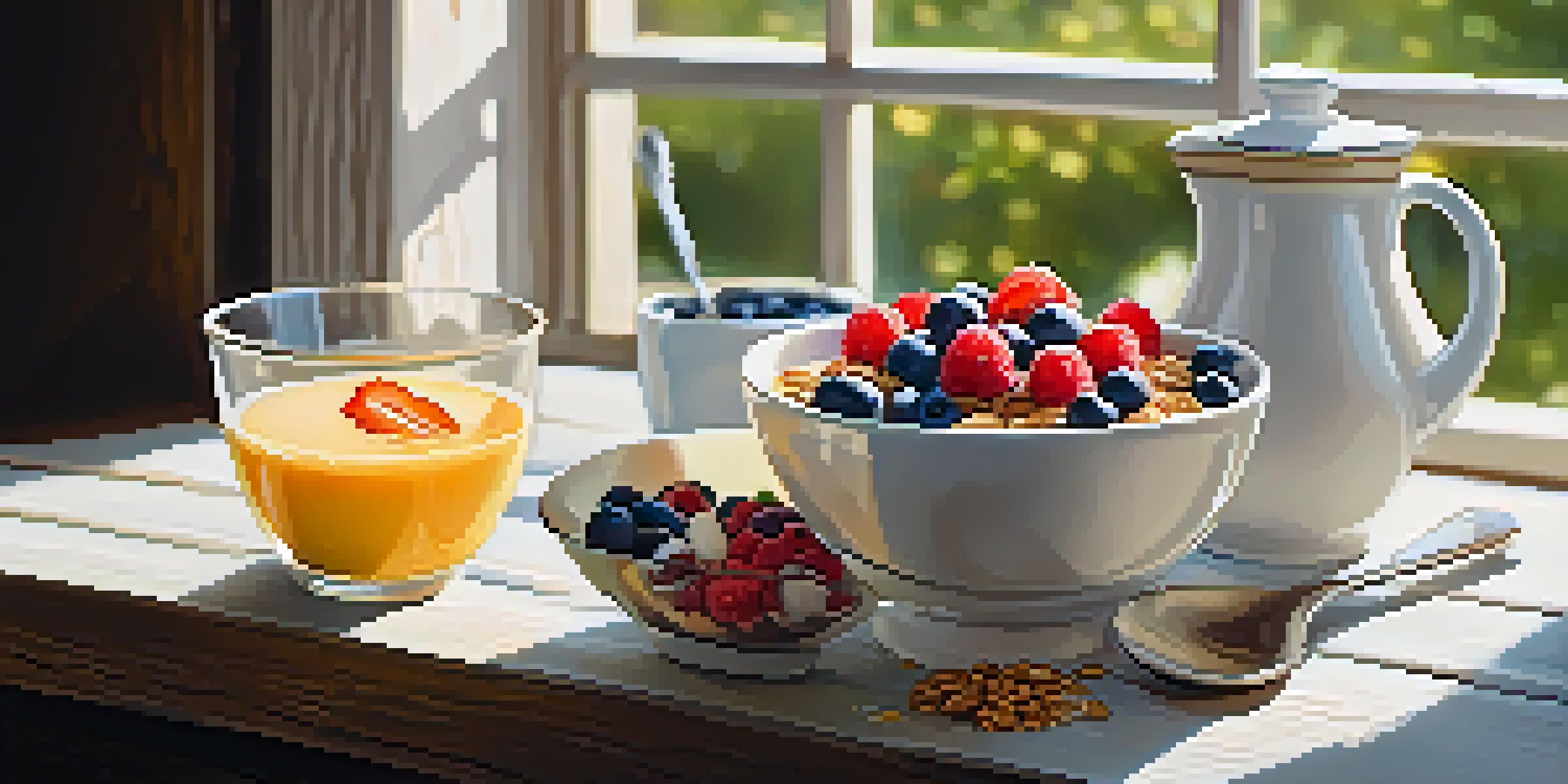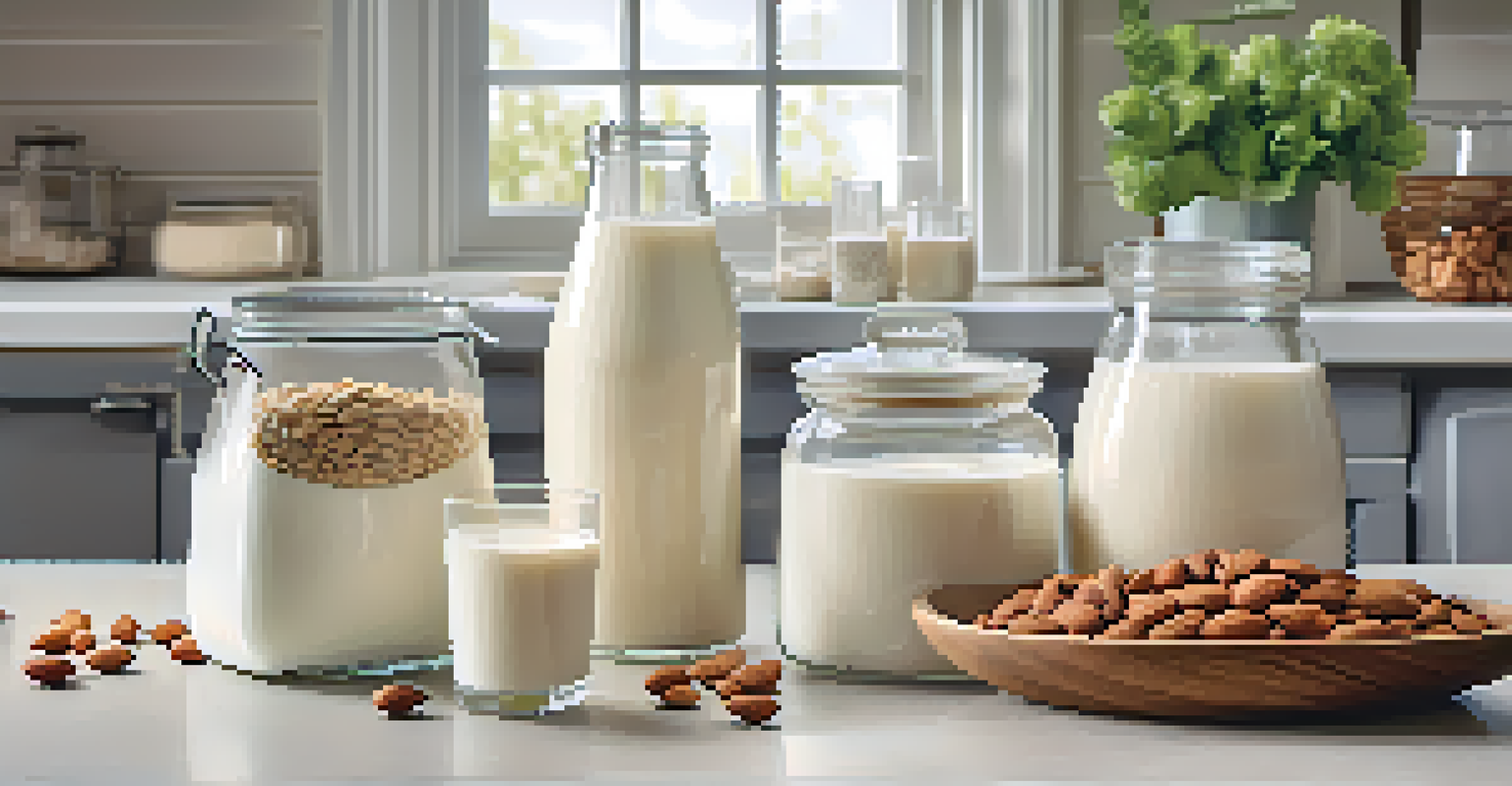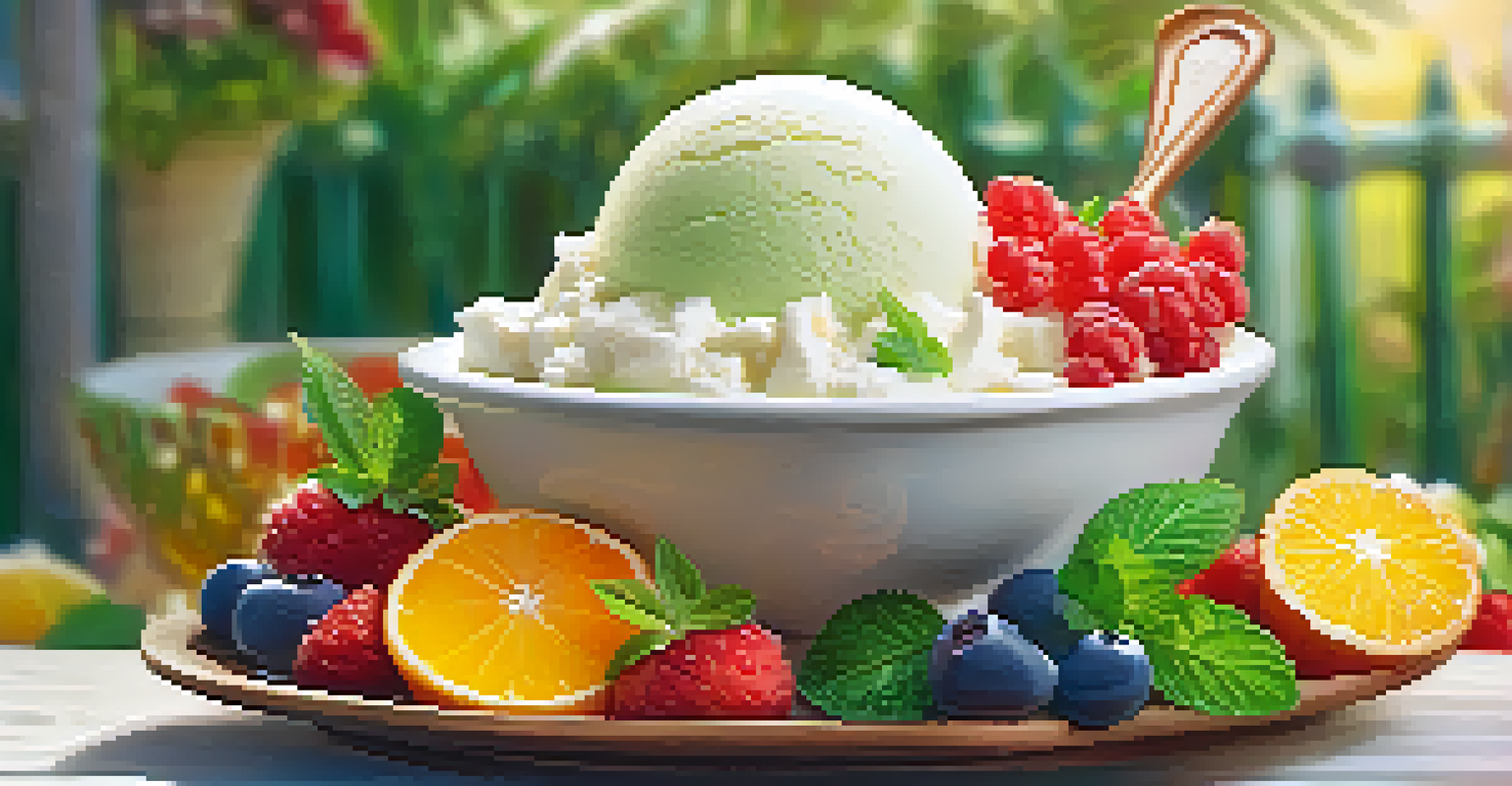Exploring Vegan Alternatives to Dairy Products

Understanding Dairy Alternatives: A Beginner’s Guide
Dairy alternatives are plant-based substitutes for traditional dairy products. They cater to those with lactose intolerance, allergies, or those following a vegan lifestyle. Understanding these alternatives can open up a world of culinary possibilities while promoting health and sustainability.
Plant-based diets are not only beneficial for your health, but they are also good for the planet.
These products include milk, cheese, yogurt, and even ice cream, all crafted from ingredients like nuts, soy, oats, and coconut. Each of these alternatives brings its unique flavor and texture, making it easy to find options that suit your taste. As you explore these choices, you’ll discover that going dairy-free doesn’t mean sacrificing flavor.
The transition to dairy alternatives can feel overwhelming, but it’s all about experimentation. Start with a few staples, like almond milk or coconut yogurt, and see how they fit into your meals. With patience and creativity, you’ll find the perfect replacements that work for you.
Popular Plant-Based Milk Options to Try
Plant-based milks have surged in popularity, and for good reason. Almond, soy, oat, and coconut milk are just a few options that can enrich your morning coffee or cereal. Each type offers a distinct taste and nutritional profile, making it easy to find one that suits your preferences.

For instance, oat milk is known for its creamy texture and is a favorite in coffee shops. Almond milk, on the other hand, has a slightly nutty flavor and is lower in calories. Meanwhile, soy milk packs a protein punch, making it a great option for those needing a protein boost.
Dairy Alternatives: A Flavorful Shift
Transitioning to dairy alternatives opens up a world of diverse flavors and textures without sacrificing taste.
When choosing a plant-based milk, consider factors like taste, texture, and nutritional content. Many brands also offer unsweetened varieties to control your sugar intake. Ultimately, the best choice is one that fits seamlessly into your lifestyle and dietary needs.
Exploring Vegan Cheese: Flavor Without the Dairy
Vegan cheese has come a long way from its early days of bland flavors and rubbery textures. Today, there are numerous varieties made from nuts, soy, and even root vegetables that mimic the taste and meltability of traditional cheese. From creamy cashew-based spreads to sharp nutty cheeses, the options are tantalizing.
The food you eat can either be the safest and most powerful form of medicine or the slowest form of poison.
Some popular brands have crafted cheese that can be shredded, sliced, or spread, making it versatile for various dishes. Whether you’re topping a pizza, making a grilled cheese sandwich, or enjoying a cheese platter, vegan cheese can delight your palate without the dairy.
Experimenting with different types of vegan cheese can enhance your meals and encourage creativity in the kitchen. Don't hesitate to mix and match flavors or even create your blends. Finding your favorite vegan cheese can make a significant difference in your dairy-free journey.
Delicious Dairy-Free Yogurt Alternatives
Yogurt is often a breakfast staple, but dairy-free alternatives have emerged to cater to those avoiding animal products. Made from bases like almond, coconut, or cashew, these yogurts offer various flavors and textures that can satisfy any craving. They also provide probiotics, promoting gut health just like traditional yogurt.
Coconut yogurt stands out for its richness, while almond yogurt is lighter and often lower in calories. Some brands even infuse their products with fruit or granola, making them perfect for a quick snack or breakfast. You might find that these alternatives can easily become a part of your daily routine.
Nutritional Benefits Matter
Many plant-based dairy alternatives are fortified with essential nutrients, making them a healthy choice when selected wisely.
As you explore dairy-free yogurts, be sure to check for added sugars or artificial ingredients. Choosing unsweetened versions allows you to control your sugar intake while enjoying the creamy goodness. With so many options available, there’s a yogurt alternative for everyone.
Ice Cream Without the Dairy: A Sweet Treat
Craving ice cream while avoiding dairy? No problem! The world of dairy-free ice creams has expanded, featuring options made from almond milk, coconut milk, and even banana. These treats come in various flavors, ensuring that you never miss out on dessert.
Coconut milk ice cream is particularly rich and creamy, making it a favorite among many. Alternatively, almond milk ice cream tends to have a lighter taste but is equally delicious. As you explore, you might even discover unique flavors that surprise and delight your taste buds.
When selecting dairy-free ice cream, look for brands that use natural ingredients and minimal additives. You can also try making your own at home using a blender and your favorite ingredients. Making ice cream can be a fun activity, and you’ll appreciate the fresh flavors even more.
Baking with Vegan Dairy Alternatives
Baking without dairy is entirely feasible, thanks to a variety of substitutes that work beautifully in recipes. Whether you're making cakes, cookies, or muffins, you can easily swap out butter and milk for plant-based options. For example, coconut oil or vegan butter can replace regular butter, while almond or soy milk can take the place of cow’s milk.
It’s important to keep in mind that the flavors and textures of your baked goods may vary slightly when using vegan alternatives. However, with the right adjustments, you can achieve satisfying results. Experimenting with different combinations can lead to delightful surprises in your baking adventures.
Experimentation is Key
Finding the right dairy substitutes requires creativity and experimentation, ensuring a satisfying culinary experience.
Additionally, many resources are available online, offering tips and recipes specifically for vegan baking. As you dive into this realm, you’ll find that the possibilities are endless, and your baked goods can be just as enjoyable without dairy.
Nutritional Considerations for Dairy Alternatives
While exploring vegan dairy alternatives, it's essential to consider their nutritional content. Many plant-based options are fortified with vitamins and minerals, making them comparable to their dairy counterparts. For instance, some non-dairy milks are enriched with calcium and vitamin D, which are vital for bone health.
However, not all alternatives are created equal. It's important to read labels and choose products that align with your nutritional needs. Some may contain added sugars or preservatives, which can detract from their health benefits.

Maintaining a balanced diet is key when switching to dairy alternatives. Incorporating a variety of plant-based foods will ensure you receive a wide range of nutrients. By doing so, you can enjoy the benefits of a dairy-free lifestyle while staying healthy.